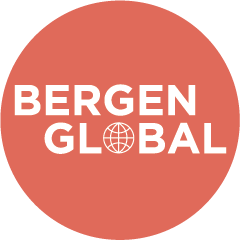Nuclear threats and radioactive risks
Wearing shorts and t-shirts, Paul Griego cleared radioactive waste on the Marshall islands in 1978. He will be part of the panel on this breakfast meeting on nuclear risks and potential consequences today.

Hovedinnhold
Russia’s invasion of Ukraine has revived our fear of nuclear weapons and radioactive emissions. President Putin has threatened to use nuclear weapons. Nuclear plants in Ukraine have been hit by missiles.
The nuclear bombs dropped on Hiroshima and Nagasaki, and more than 2000 nuclear tests globally, provide us with lessons about the consequences of radioactivity.Recently, the UN Treaty on the Prohibition of Nuclear Weapons (TPNW) entered into force, seeking to abolish the use, tests and threats with use of nuclear weapons. The Treaty also provides an international framework for environmental remediation and assistance to victims of nuclear use and tests.
What is the risk today of a nuclear catastrophe? What could the consequences be? And how can we prevent a worst-case scenario? Join us for an interesting discussion!
Panel:
Paul Griego: The US detonated 67 nuclear bombs on the Marshall Islands in total. In 1978, at the age of 20, Paul Griego was part of a clean-up mission that conducted surveys and moved radioactive fallout and debris after the tests. Today, Paul suffers from medical conditions caused by ionizing radiation. He is coming to Bergen to share information of the plight of the Marshallese people, and to promote further research on the consequences of the nuclear tests in the Marshall Islands.
Tuva Widskjold: Tuva is the coordinator of ICAN Norway. ICAN, The International Campaign to Abolish Nuclear Weapons, was awarded the 2017 Nobel Peace Prize for the “work to draw attention to the catastrophic humanitarian consequences of any use of nuclear weapons” and the “ground-breaking efforts to achieve a treaty-based prohibition of such weapons”. The Treaty on the Prohibition of Nuclear Weapons provides the first ever international framework for environmental remediation and assistance to victims after nuclear use and testing. Tuva will explain how this work is progressing.
Helene Skovdahl: Medical doctor and PhD in medicine. She will commence specialization in oncology this fall. Skovdahl is a board member of Norske leger mot atomvåpen (Norwegian Physicians Against Nuclear Weapons). Norske leger mot atomvåpen is an organization for medical doctors, working to spread information about the humanitarian consequences of nuclear weapons and a total elimination of these weapons.
Kurt Hanevik: Associate professor at Department of Clinical Science, University of Bergen. His research focus is in global health and infectious medicine. He will lead the discussion.
